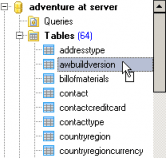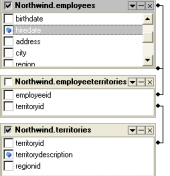MS SQL Maestro online Help
| Prev | Return to chapter overview | Next |
Create Default Wizard
New defaults are created within Create Default Wizard. In order to run the wizard you should either
| • | select the Object | Create Database Object... main menu item; |
| • | select the Default icon in the Create Database Object dialog |
or
| • | select the Defaults list or any object from that list in the explorer tree; |
| • | select the Create New Default... item from the popup menu |
or
| • | open the schema in Schema Editor and the Defaults tab there; |
| • | press the Insert key or select the Create New Default item from the popup menu (alternatively, you may use the corresponding link of the Navigation Bar). |
To create a new default with the same properties as one of the existing defaults has:
| • | select the Object | Duplicate Database Object... main menu item; |
| • | follow the instructions of Duplicate Object Wizard. |
To add a new default, specify a comment to the default and set the default value. The value must be an expression that contains only constant values (it cannot include the names of any columns or other database objects). Any constant, built-in function, or mathematical expression can be used, except those that contain alias data types. User-defined functions cannot be used. Enclose character and date constants in single quotation marks ('); monetary, integer, and floating-point constants do not require quotation marks. Binary data must be preceded by 0x, and monetary data must be preceded by a dollar sign ($). The default value must be compatible with the column data type.
See also: Default Editor
| Prev | Return to chapter overview | Next |





 Download
Download Buy
Buy
